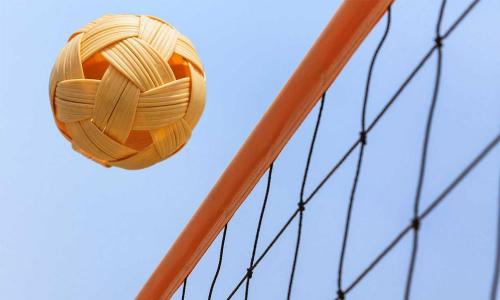LETTER | Orang Asli sports: Whose court is the ball in?
LETTER | A few weeks ago, I was on a car ride with an Orang Asli friend. We were talking about anything under the sun to make our journey a little more eventful as we’ve not seen each other for many months.
Jarod (not his real name), who is also an avid sepak takraw player, spoke about the challenges that he faced as he chased his dream of playing the sport professionally. His record so far with minimal losses and countless wins is a testimony of the hard work that he and his teammates have put in.
I was keen to understand more about the sports scene in the Orang Asli community, so this became our main topic as we continued a slow and steady journey down the road. His journey has not been a walk in a park and it is as challenging as a sepak takraw smash.
His challenges include financial burdens due to the lack of a travel allowance to competition venues as many of such events are held in bigger cities or towns in the various states.
In the past, this was allocated for his team but the budget had since been cut, leaving the team to pay for expenses out of their already shallow pockets.
Another hurdle in his team’s quest for glory was the systemic issues surrounding the sport. While one can provide the benefit of the doubt to his accounts, systemic issues - including racism - forced him and his team to sit out of a tournament that he was confident they would get a podium finish.
I am neither an expert in the sport nor do I have experience in sports management. But with what I’ve learned in university and training stint as a sport psychology practitioner, he and his team possess the confidence that was required to excel in sports.
However, the (avoidable) organisational stressors such as financial and institutional challenges can cause unnecessary impact on their performance and wellbeing.
Time and time again, research from experts and personal accounts of athletes have shown that sport is one of the most effective mediums for positive youth development.
Unfortunately, the conversation I had with Jarod made me rethink the benefits of sports - is it really for all, or is it a privilege that many of us take for granted?
Thanks to the efforts of various parties and the government, many Orang Asli villages come equipped with football fields and sepak takraw courts, which became a favourite pastime for the children and men in the evening.
(I have yet to see the womenfolk of the village engage in sepak takraw or football, perhaps it has to do with gender roles or just a general disinterest in the sport? Unfortunately, I did not manage to ask the villagers this question.)
They have been playing these sports from a young age, one wonders about their potential if they were given more opportunities to excel. Just imagine if they want to become the nation’s best in their sport and if they are able to earn a decent and stable income for themselves and their family.
I have always wondered about the scarce representation of Orang Asli in Malaysian elite sports. Apart from Nia Vanessa Suhana, an up-and-coming national mountain biker of Temuan descent, I have not heard of any other athletes from the Orang Asli communities. One can only assume unless given the opportunity to interact with the athletes personally.
According to past articles touching upon Orang Asli representation in sports, it, unfortunately, seems like there has not been much progress.
Although there are efforts by the government to organise sporting events for the indigenous community, is enough being done in identifying talent among the Orang Asli and their sporting development?
I hope that this opinion piece can get the (takraw) ball rolling on the conversations around diversity and inclusion in Malaysian sports, not forgetting the often-overlooked citizens of Malaysia.
With the new year rolling in, let us remember the diversity of our nation’s children and how we can empower our communities through representation in various fields.
The views expressed here are those of the author/contributor and do not necessarily represent the views of Malaysiakini.
RM12.50 / month
- Unlimited access to award-winning journalism
- Comment and share your opinions on all our articles
- Gift interesting stories to your friends
- Tax deductable
